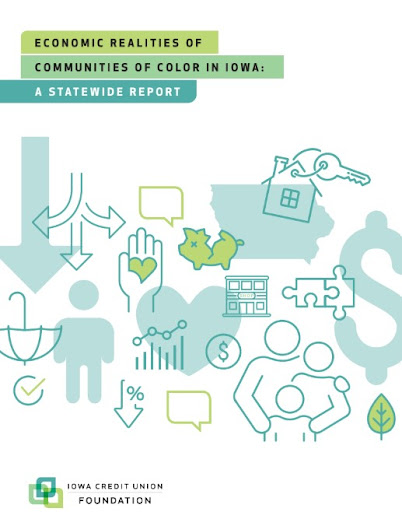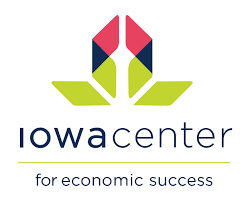New report looks at economic needs of Iowa’s minority population

Kathy A. Bolten Apr 10, 2023 | 10:15 am
3 min read time
615 wordsAll Latest News, Economic DevelopmentThe racial and ethnic makeup of Iowa is changing, and by 2045 nearly 22% of the state’s population is expected to include minorities and mixed-race individuals, according to the U.S. Census Bureau.
A need exists in helping the new Iowans to be successful financially and to build intergenerational wealth through the ownership of homes and small businesses, according to a newly released report commissioned by the Iowa Credit Union Foundation called “Economic Realities of Communities of Color in Iowa.”
“Increased population growth is now, however, complemented by increased prosperity,” according to the report put together by West Des Moines-based Coopera Consulting. “The overall well-being of [Iowa] hinges upon the well-being of its most vulnerable communities.”
The report’s key findings include:
- Minorities are largely employed in the manufacturing, health care and social assistance sectors. “To ensure that communities are prospering, not just surviving, it is imperative to keep an eye on possible pathways for minority workers to secure ‘high demand jobs’” that provide paths to building skills and earning higher wages, the report said.
- 76% of white Iowans can afford to buy a home, compared with 67% of Hispanics and 51% of Blacks. Homeownership has long been considered one of the most effective ways to build wealth. One suggestion from the report to help more minorities own homes is to increase access to down-payment assistance programs.
- More than 99% of Iowa businesses are small businesses, but fewer than 10% are owned by racial and ethnic minorities. Minority-owned businesses help facilitate culturally relevant social networks and activities, employ minority workers, and help share important civic and public health information with their communities, according to the report. One suggestion to help develop more minority-owned businesses is to promote mentoring and training opportunities to become franchise owners.
- High school dropout rates are higher among racial and ethnic minorities when compared with white students. In addition, minority students also were more likely to be chronically absent from school. “The relationship between education and employment is strong; those with more education acquire skills that will increase their likelihood of being employed,” the report said. The report suggests the creation of initiatives to help students obtain high school diplomas.
- In rural parts of Iowa, 35% of families lack access to sufficient licensed child care providers. The state loses out on an estimated $935 million in economic activity annually due to lack of child care, according to the report. One suggestion in the report is to encourage initiatives for sustainable financing for safe and high-quality child care.

In the past, the Iowa Credit Union Foundation has worked with other groups to gather data and conduct surveys on community needs, Ena Babic Barnes, Iowa Credit Union Foundation’s executive director, said. This is the first time the foundation has spearheaded a report that looks at the economic conditions for Iowa’s minority communities.
“We wanted to make sure that we have that holistic approach in making sure we understand the needs and realities of Iowans,” Barnes said.
The foundation, formed in 1995, is the philanthropic arm of the Iowa Credit Union League. In 2022, the foundation awarded more than $150,0000 in grants and scholarships, including $23,000 to 12 students through the Warren A. Morrow Scholarship program. The foundation also provided over $48,000 in grants to community organizations such as the Iowa Coalition Against Domestic Violence and Greater Des Moines Habitat for Humanity.
Information in the report will help the foundation make decisions about what programs and services to invest in in the future, Barnes said.
“We want to elevate the programming we have been doing,” she said. “We want to provide our credit unions with the resources that can help them meet the needs of their communities.”
To read the report, click here.

Kathy A. Bolten
Kathy A. Bolten is a senior staff writer at Business Record. She covers real estate and development, workforce development, education, banking and finance, and housing.











